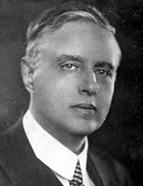

Economic history is another important aspect of Taunay's work that links him to the author of Épocas de Portugal Econômico [Times of Economic Portugal]. At the end of the 20s, Taunay took part in the commemoration of the bicentenary of the introduction of coffee to Brazil, organised by the Departamento Nacional do Café [National Coffee Department], and was asked by the then director of the Department, Armando Vidal, to write the History of Coffee in Brazil. As the first result of this research, Taunay published a summary in 1934 entitled A propagação da cultura cafeeira [The Propagation of Coffee Culture], and, continuing this work, between 1939 and 1943 he published the fifteen volumes of the História do Café no Brasil [History of Coffee in Brazil] , especially dedicated to the publication of important sources for the development of Economic History in Brazil.
Another dialogue that marked his works was with the Portuguese philologist Antonio Cândido de Figueiredo, author of Novo dicionário da língua portuguesa [New dictionary of the Portuguese language]. After the publication in 1909 of Léxico de termos técnicos e científicos, which dealt with the shortcomings of Portuguese language dictionaries, he published Léxico de lacunas [Shortcomings lexicon] in 1914, the aim of which he presented in the long subtitle: "a lexicon of common terms, common in Brazil, especially in the state of São Paulo, and of the meanings of numerous words, not yet mentioned in the great dictionaries of the Portuguese language". To address the shortcomings of the dictionaries, Taunay identified more than ten thousand omissions, aiming not only to supplement but also to correct the errors in the work of the lexicographer Cândido de Figueiredo. This controversy led to the publication of six other books: Vocabulário de omissões [Vocabulary of omissions] (1924), Coletânea de falhas [Collection of errors] (1926), Reparos ao dicionário de Cândido de Figueiredo [Corrections to Cândido de Figueiredo's dictionary] (1926), A terminologia zoológica e científica em geral e a deficiência dos grandes dicionários portugueses [Zoological and scientific terminology in general and the shortcomings of the great Portuguese dictionaries] (1927), Insuficiência e deficiência dos grandes dicionários portugueses [Insufficiency and shortcomings of the major Portuguese dictionaries] (1928) e Inópia científica e vocabular dos grandes dicionários portugueses [Scientific and vocabulary copies of the great Portuguese dictionaries] (1932). Taunay regarded language as the most inexhaustible of all existing sources, noting that new words were constantly being created to describe technological developments, emerging societal habits, and linguistic insights within historiography itself. Like any good controversy, Cândido de Figueiredo addressed Taunay's criticisms in his work Combates sem sangue: em favor da língua portuguesa [Bloodless fights: in favour of the Portuguese language] published in Lisbon in 1925, the year of his death. In response, Taunay, in the last chapter of Insuficiência e deficiência [Insufficiency and Deficiency] wrote what he called "Supreme humiliation, Confession of defeat, Act of contrition". Cândido de Figueiredo accused Taunay of lacking knowledge in the science of lexicography, asserting that his method of addressing gaps through literature, documents, and historiography was outdated. In response to such criticism, Taunay satirised a story his father had told him and crafted a scene in which the great masters cited by Figueiredo were gathered in a room to applaud the "new genius of the Portuguese language and comparative philology, Mr Cândido de Figueiredo" and suddenly realised the presence of "the unruly Taunay", who ironically quotes the most absurd mistakes made by Figueiredo as unshakeable truths. This controversy with Cândido de Figueiredo led to considerable dissatisfaction with Capistrano de Abreu, who regarded these lexicographical pursuits as a waste of time for someone devoted to constructing the narrative of the bandeirantes' epic.
This work is financed by national funds through FCT - Foundation for Science and Technology, I.P, in the scope of the projects UIDB/04311/2020 and UIDP/04311/2020.
